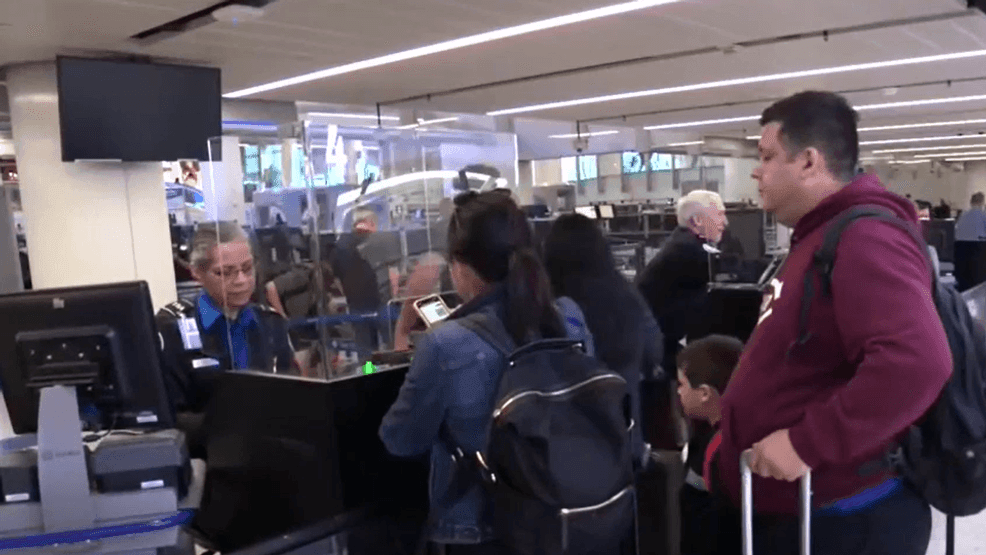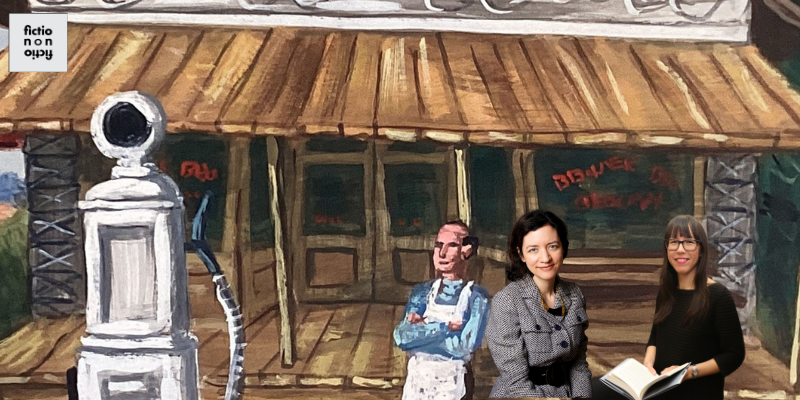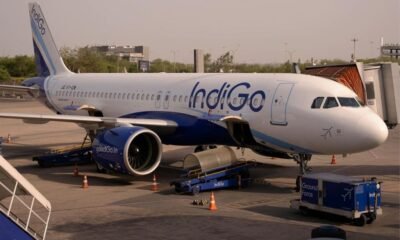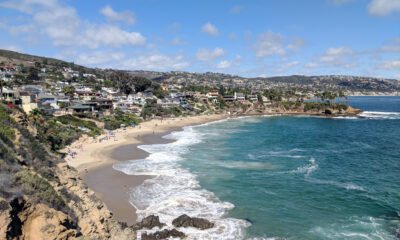Travel Journals
Record-breaking travel season ends with Labor Day trips; AAA advises early departures

EUGENE, Ore. — Summer is coming to an end, and school is right around the corner – and that means time for one last summertime getaway this Labor Day.
The American Automobile Association (AAA) says it’s already been a record-breaking travel season.
And it’s not just road trips topping the list; cruises and theme parks share the top spots along with trips to the coast and central Oregon.
To help make your Labor Day weekend a little less stressful, AAA says most days this week, you should hit the road before noon to beat the traffic.
Good news for travelers: The prices for flights, hotels, and car rentals are lower than this time last year.
Travel Journals
I Found Freedom Along the Alaska Highway

At The Free Press, we firmly believe that everyone, for a few days each year, needs to slow down, switch off, and hit the road—and what better time to do it than the last week of August? So this week, instead of The Front Page, we’re running Journeys, a new series about the trips that change us. Yesterday, Norman Podhoretz lifted the veil on his famous journey from Brooklyn to Manhattan. Today, Paul Kingsnorth shares a tale from the back roads of the Alaska Highway. Enjoy! —The Editors
The good things happen on the margins. At the edges. This is hardly an original observation, but originality is overrated. If something has survived a long time, there’s likely to be something in it.
I’m on a five-day road trip from Montana, through British Columbia, and into Alaska, accompanied by my family and my friend Paul, who is from Alaska. It is day four, and we are on the Canadian part of the Alaska Highway. As we drive along, Paul explains that the road used to be much rougher and the cars much slower. As a result, the journey took longer, and plenty of resorts, motels, cafés, and bars sprang up along the road to cater to the need to stop for rest and refreshment.
Now, the journey is shorter, thanks to faster cars and a smoother road. Good news for drivers in a hurry, but bad news for those people who ran the resorts and cafés. As we continue to head north, we see the consequences: shuttered shops, silent restaurants, and entirely empty holiday resorts.
Travel Journals
Jennifer Szalai and Alexandra Jacobs on Great American Road Trip Books ‹ Literary Hub

New York Times book critics Jennifer Szalai and Alexandra Jacobs join co-hosts Whitney Terrell and V.V. Ganeshananthan to discuss their recent article, “Love Jack Kerouac? Read These Great American Road Trip Books Next,” which they co-authored with their fellow critic Dwight Garner, and which includes books published after Kerouac’s On the Road. They talk about road trips as escapism, claustrophobia, exploration, and nostalgia, and reflect on their picks, including Hilma Wolitzer’s 1980 novel Hearts, Gypsy Rose Lee’s 1957 eponymous memoir, Michael Paterniti’s 2000 non-fiction book Driving Mr. Albert, and Jesmyn Ward’s 2017 novel Sing, Unburied, Sing. Szalai and Jacobs talk about developing an expansive conception of what qualifies as a road trip book, leaving Lolita out, and favorite road trip music and games. They read from the article.
To hear the full episode, subscribe through iTunes, Google Play, Stitcher, Spotify, or your favorite podcast app (include the forward slashes when searching). You can also listen by streaming from the player below. Check out video versions of our interviews on the Fiction/Non/Fiction Instagram account, the Fiction/Non/Fiction YouTube Channel, and our show website: https://www.fnfpodcast.net/ This podcast is produced by V.V. Ganeshananthan, Whitney Terrell, and Moss Terrell.
Jennifer Szalai and Alexandra Jacobs
Others:
On the Road by Jack Kerouac • Hearts by Hilma Wolitzer • Gypsy by Gypsy Rose Lee • Driving Mr. Albert by Michael Paterniti • Sing, Unburied, Sing by Jesmyn Ward • Tigerlily by Natalie Merchant • The Price of Salt by Patricia Highsmith • Lolita by Vladimir Nabokov • A Good Man is Hard to Find by Flannery O’Connor • Still Here: The Madcap, Nervy, Singular Life of Elaine Stritch by Alexandra Jacobs
EXCERPT FROM A CONVERSATION WITH JENNIFER SZALAI AND ALEXANDRA JACOBS
V.V. Ganeshananthan: To give our listeners like a sense of the incredible range of this list, Alexandra, you also have the earliest book on the list, Gypsy Rose Lee’s ’57 memoir, Gypsy, which started as a 1943 New Yorker piece and ended up being a celebrated Broadway musical, not the path of most books. Have you always thought of that as a road trip book? Or did you have a moment of inspiration when you were trying to get something less conventional in there and you realized that this could actually belong? And why does it belong?
Alexandra Jacobs: It’s funny, I think Lolita died so that Gypsy could live. In other words, Lolita was the one I was thinking about. Our commenters on the project were all like, where’s Lolita? Where’s Lolita? And Lolita was published in ’55 in France so it technically didn’t qualify, but it was published in America, I think not ’til ’58 any or ’57. So for whatever reason, we ruled out Lolita and fairly soon after that, Gypsy popped into my head. There’s a production of Gypsy on Broadway that either just closed or is about to close, and I wanted it almost immediately, because to me, it’s the story. It’s the quintessential road trip book in so many ways because it’s about the quintessential American Road Trip, because it’s about resourcefulness, adaptation, changing identity. There are elements of danger and and really, it’s about not knowing where you’re going to end up both physically and metaphorically. Will you be in lights? A big star? Or are you going to be in the gutter? Gypsy’s somewhere in between.
It’s about this very specific time in the history of American entertainment, when being on the road for the theater was really fun but also fraught with peril and uncertainty. It depicts a lost experience of American entertainment. But it was kind of hard to dig it up. It’s still in print but the edition I had, which I got off eBay, was definitely a little worse for wear. Like Mama Rose herself, one could say. Anyway, I loved resurrecting this. I’m so glad that they allowed me to stick it in there. I’m still deeply resentful about the elimination of Lolita. But, you know, maybe next year.
AJ: It was just purely a date technicality. Its first publication was ’55 and we had cut ourselves off with On The Road.
Jennifer Szalai: It’s always the thing with a list, how you know you want to have some constraints, because that’s what makes it exciting, in a way. But also, you want it to be capacious enough to include a bunch of the books you want. But then there’s always the cutoff point. And Lolita came just a little bit too early to work for us.
Whitney Terrell: I was thinking of the story “A Good Man is Hard to Find” as a classic road trip piece of literature, but that was published before your date.
AJ: There were so many like that. We had The Price of Salt, which came to be known as Carol after the movie, the Patricia Highsmith book that was written before she was Patricia Highsmith. That would have been great. I wrote an entire blurb for that that got left on the cutting room floor. So, watch your back, Scott Heller.
WT: Not all road trips are about freedom or adventure. Sometimes, depending on who you are, the road trip can be dangerous and terrifying and not at all like Kerouac’s road trip. His experience is very different than, say, Black Americans at the time who were relying on the Negro Motorist Green Book, which is the subject of Alvin Hall’s 2023 book, Driving the Green Book. That book is on the list, but Dwight wrote about it so we’re not going to ask you about that specifically, but we do want to talk about Jesmyn Ward’s novel, Sing, Unburied, Sing, which Jennifer wrote about, which is less about escaping life and more about revisiting the ghosts of the past. I wondered if you could talk to us about that kind of road trip.
JS: The book is about a mixed race family, and it’s told through the eyes of various characters. One of the main characters is this 13-year-old boy, Jojo. He, his baby sister, and his mother, who has a pretty severe drug problem, drive to the prison where his father has just been released and his grandfather actually did time decades ago. So there’s a road trip element to it, it’s a central spine of the book. But it turns out to be very complicated, because there are actual ghosts in this novel. So instead of the idea of the open road as this open future, it’s really more about the things in the past that keep this family and these characters from moving forward. It’s a contemporary book, but it’s one of those books that I think uses the trope of the road trip and really sort of turns it around and makes you think about it in a different way. That’s why I picked it for the list.
VVG: There are sections during the broader piece where the two of you and Dwight Garner—and I guess again here I’m entering my imaginary buddy movie—you answer questions like, “What’s the best music for a road trip?” and “What’s your favorite rest stop?” We’ll have a link to the article in the show notes so our readers can go and read all of these, but I thought we could hash a few out. I’m curious about what a road trip means for you personally. For instance, Alexandra, you say the best music for a road trip is the Philadelphia sound. I guess if you know, you know, but what if we don’t know?
AJ: I picked that, I won’t say at random, but I love listening to all kinds of music on a road trip. It’s not like this is my only choice, but I chose it partly because I think it is a little bit less known. It’s a much maligned, lushly orchestrated style of soul music from the ’60s and ’70s, largely produced by the duo Gamble and Huff that I think The Times profiled not so long ago. It’s groups like Harold Melvin and the Blue Notes, the OJS and Spinner Stylistics. I think it’s perfectly suited to the highway. I don’t like driving. I especially don’t like highway driving because I’m from New York. Maybe I have a sentimental attachment to this music because my dad was from Philly. There’s something about it. It’s perfectly suited to the highway, just speeds you right along. It’s not disco, but it’s a little disco adjacent. It gets you thinking about your past and your past loves, and your future. It’s familiar, but it’s not so familiar that it’s cloying. I wanted to put in a plug for that, because I just think when you’re driving—Jen and I are, like I said, we’re not, we’re not professional drivers.
JS: I’m a non-driver, basically.
AJ: That’s just it. I really think to get for me to go above 40 on the highway, which I know is mandated—
WT: Listeners in the Midwest are thinking, “Of course, it takes non-drivers to make this list. Reading is all you have to do.”
AJ: I know, it’s just that I need something to give me the courage to press on that gas. And this does it for me. I can’t explain why.
WT: What was your music, Jennifer?
JS: The music that I named as my favorite for now is an album called Tigerlily by Natalie Merchant. My reasons for picking it are very basic. One, I like it. It’s from the 1990s. It’s also an album that my teenager, who is 15, will actually tolerate.
WT: That’s my standard now. If I hear my son playing a song that I played for him in a car, I’ve won some tremendous victory.
JS: Yes, oh my God, for sure. That is my reason because for the most part, I never drive. It’s my husband who’s doing the driving usually.
WT: Well, being a passenger is an important part of a road trip.
JS: Exactly. I’m often navigating. We use GPS, but he also has an appreciation for the atlases, because you can actually find scenic routes if you look through them.
AJ: Google Maps will often lead you astray. It’ll do nutty things just to cut off 10 seconds.
JS: It’ll usually give you the basic six lane highway route, when sometimes we want to take a scenic route, even if it takes longer.
WT: Oh, my God, I grew up with atlases I still have. You can’t see all the roads with the way the phone does it, right?
JS: 100 percent. There’s one that was particular to Los Angeles: the Thomas guide. There was a time everyone in LA had a Thomas Guide, which was like a 100-page atlas. And you discovered so much of LA that way that you never would now.
VVG: So, you’re both non drivers. I’m—I have a license. I even have a car. I also am effectively a non-driver because of a deep and abiding hatred. But I would say—
WT: Of driving or of some person?
VVG: No. I mean, that’s a separate episode. I think I’m afraid of driving in what is a fundamentally pretty logical way. It’s a super dangerous thing to do, and we do it all the time because America and because we’re a foolishly big, outlandishly big country, which is part of why road trips are so associated with our country,and knowing it and having the freedom to explore, in particular. But I think that maybe 90 percent of my reading as a kid was done in a car. So can you read in a car? Do you get carsick?
AJ: I get carsick. I can’t even read my phone in the car. I don’t like it.
JS: Same. I can’t do it. I’ll also admit that growing up, my parents didn’t have a car. So, we didn’t really do road trips. Road trips for me were something that I started doing as a grown up.
AJ: We had a car growing up, but it was stolen. One summer, because this was, ’80s, New York, I came home from camp and we didn’t have a car anymore. Talking about danger. And the opposite end of this, it was big. They sent it to a chop shop and I was traumatized thinking of our big black Ford being sent to a chop shop and dismantled for parts. Because to me, it felt like a family member.
Transcribed by Otter.ai. Condensed and edited by Rebecca Kilroy. Photograph of Jennifer Szalai by Earl Wilson. Photograph of Alexandra Jacobs by Nancy Crampton.
Travel Journals
Mike Mastovich | McCort-Carroll, Richland face LHAC challenges on Blair County road trips (WITH STAT LEADERS) – The Tribune-Democrat
-

 Brand Stories1 month ago
Brand Stories1 month agoBloom Hotels: A Modern Vision of Hospitality Redefining Travel
-

 Brand Stories1 month ago
Brand Stories1 month agoCheQin.ai sets a new standard for hotel booking with its AI capabilities: empowering travellers to bargain, choose the best, and book with clarity.
-

 Destinations & Things To Do1 month ago
Destinations & Things To Do1 month agoThis Hidden Beach in India Glows at Night-But Only in One Secret Season
-

 Destinations & Things To Do1 month ago
Destinations & Things To Do1 month agoUntouched Destinations: Stunning Hidden Gems You Must Visit
-

 AI in Travel1 month ago
AI in Travel1 month agoAI Travel Revolution: Must-Have Guide to the Best Experience
-

 Family Travel2 months ago
Family Travel2 months agoThings to Do Indoors in New Jersey
-

 Brand Stories2 months ago
Brand Stories2 months agoVoice AI Startup ElevenLabs Plans to Add Hubs Around the World
-

 Brand Stories1 month ago
Brand Stories1 month agoContactless Hospitality: Why Remote Management Technology Is Key to Seamless Guest Experiences
-

 Restaurants & Food5 months ago
Restaurants & Food5 months ago10 New Restaurants In Delhi NCR To Head To This Month
-

 Brand Stories2 months ago
Brand Stories2 months agoHow Elon Musk’s rogue Grok chatbot became a cautionary AI tale














You must be logged in to post a comment Login